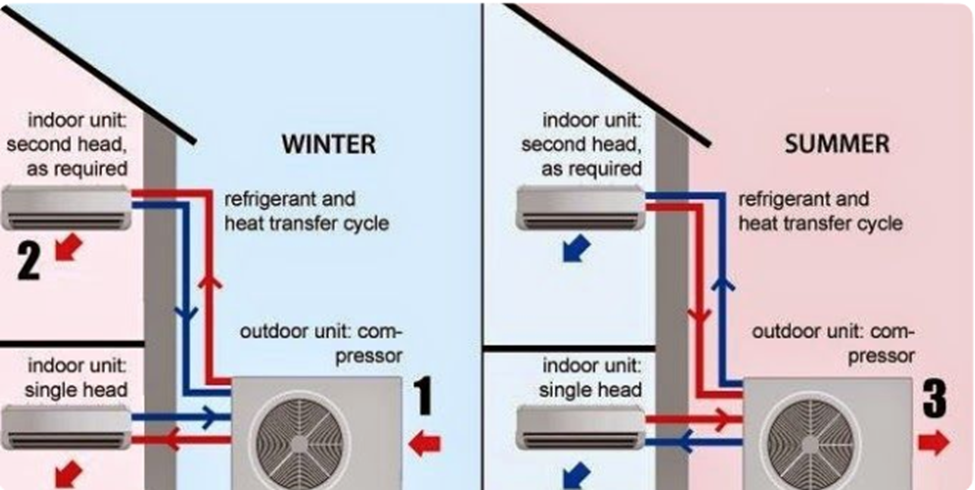What is an HVAC Split Unit System?
In the realm of modern comfort, HVAC (Heating, Ventilation, and Air Conditioning) systems reign supreme.
Among the various types available, the split system HVAC stands out as a popular choice for many households and commercial spaces. In this article, we delve into the workings, benefits, and applications of split unit HVAC systems.
What is a Split System HVAC?
A split system HVAC, also known as a split air conditioner, comprises two main components which are an outdoor unit (condenser) and an indoor unit (evaporator).
These units are connected by copper tubing and a drain for condensate. The outdoor unit typically houses the compressor, condenser coil, and a fan, while the indoor unit contains the evaporator coil and a blower.
How Does an HVAC Split Unit System Work?
The split system functions by transferring heat from inside a building to the outdoors during summer (cooling mode) and vice versa during winter (heating mode). Here is a breakdown of its operation for both mode:
Cooling Mode
The indoor unit's evaporator coil absorbs heat from the indoor air, cooling it in the process. The absorbed heat is then transferred to the outdoor unit via the refrigerant lines.
In outdoor unit, the compressor increases the pressure and temperature of the refrigerant, causing it to release the absorbed heat into the outdoor air. The cooled refrigerant returns to the indoor unit to repeat the cycle.
Heating Mode
The process is essentially reversed in heating mode. The outdoor unit absorbs heat from the outdoor air and transfers it indoors.
Benefits of Split Unit HVAC Systems
Energy Efficiency
Split systems often boast high energy efficiency ratings, particularly those with inverter technology, which adjusts compressor speed based on cooling demands.
Zoned Cooling
With multiple indoor units connected to one outdoor unit, split systems allow for zoned cooling, enabling users to control temperatures in different areas independently.
Quiet Operation
Since the noisy compressor is located outdoors, split systems generally operate more quietly compared to traditional HVAC systems.
Flexible Installation
The absence of ductwork in ductless split systems makes installation more flexible, especially in buildings where ductwork is impractical or impossible.
Improved Indoor Air Quality
Some models come with advanced filtration systems, enhancing indoor air quality by capturing dust, allergens, and other airborne particles.
Applications of Split Unit HVAC Systems
Split unit HVAC systems find applications in various settings, including:
Residential Buildings
Ideal for homes where central ducted systems are not feasible or for supplementing existing systems.
Commercial Spaces
Offices, restaurants, retail stores, and other commercial establishments benefit from the flexibility and efficiency of split systems.
Server Rooms
Split systems are often used to cool server rooms and data centers due to their ability to provide targeted cooling.
Conclusion
HVAC split systems offer efficient and customizable solutions for maintaining comfortable indoor environments year-round.
With their energy efficiency, quiet operation, and flexibility, they continue to be a popular choice for both residential and commercial applications.
Whether cooling a small apartment or a large office building, the split system HVAC proves to be a reliable and effective comfort solution.
TCW Group, as a one stop HVAC manufacturer based in Malaysia, able to provide services starting from design of the units based on customized applications, up to manufacturing and complete unit assembly.
Shall you have any inquiries, feel free to reach us at support.hvac@tcw-my.com.


